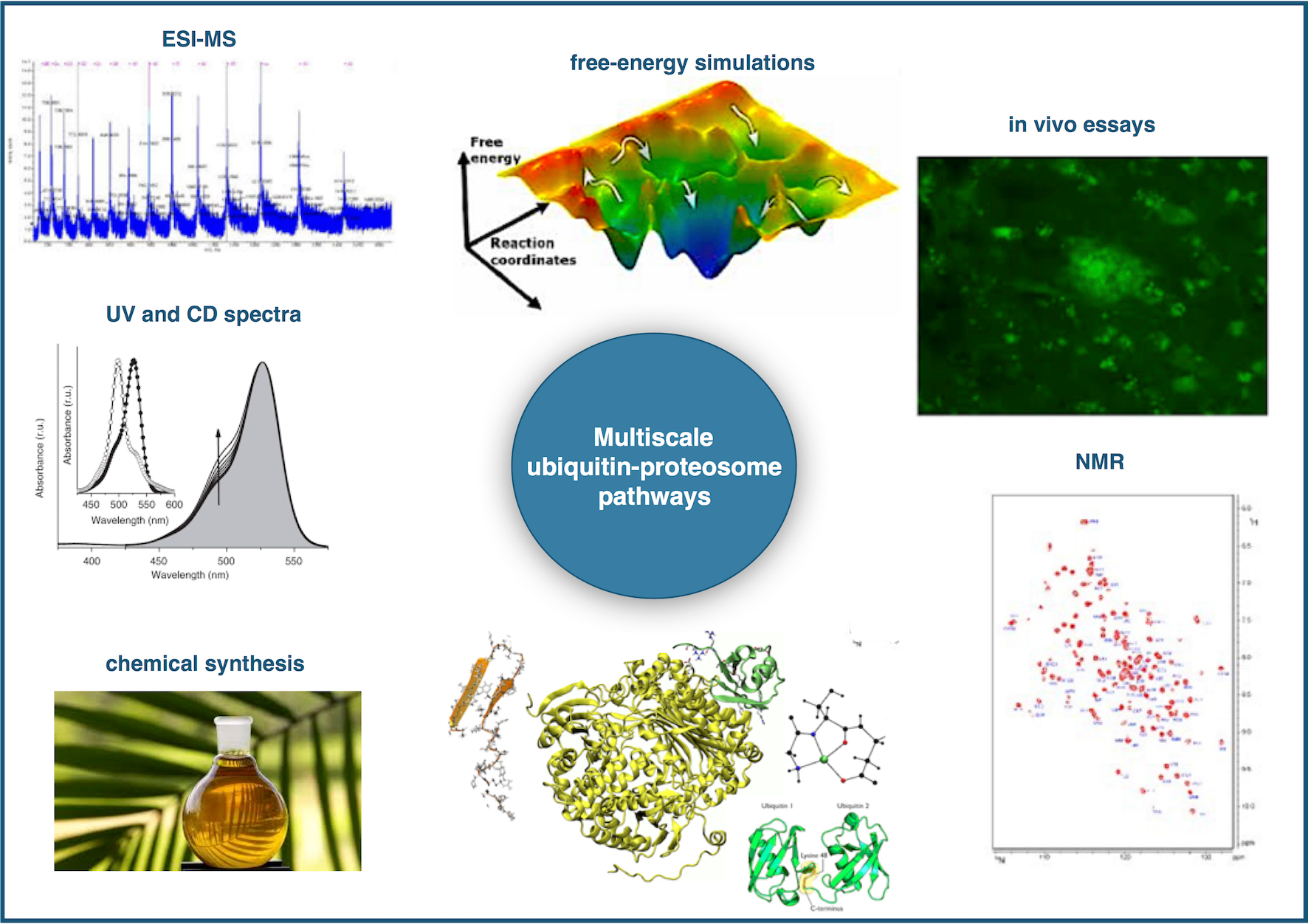MEPROT
TITLE:
Role of Metal dyshomeostasis and ubiquitin-Proteasome system derangement in brain pathologies: risk factors and neuroprotective strategies
MEPROT
FINANCING SCHEME:
PRIN: PROGETTI DI RICERCA DI RILEVANTE INTERESSE NAZIONALE – Bando 2015 Prot. 20157WZM8A
SHORT DESCRIPTION AND USEFUL INFO:
The ubiquitin-proteasome system (UPS) is the first line of defense in degrading soluble misfolded/oxydized proteins. Maintaining steady-state levels of proteasome composition and function is important for the maintenance of physiological proteostasis in neuronal cells. In addition and intertwined to proteostasis, a balanced metal ions concentration and compartmentalization are required in order to maintain a correct functioning of the cell. Indeed, metal ions dyshomeostasis as well as impairment of UPS have been associated with etiopathogenesis of neurodegenerative disorders, such as Alzheimer Disease (AD), leading to the accumulation of toxic proteins and metal overloading in the neurons, which both represent hallmarks for the development of neurodegenerative diseases. Moreover, defects and/or dysfunctions of the UPS are also associated with the alteration of neuronal development and, therefore, they may underlie cognitive disorders, such as Rett syndrome (RTT) and autism. Based on these assumptions, here we propose a cross-disease analysis of apparently unrelated pathologies, AD and RTT. At molecular level, we will mainly focus on the specific alterations of UPS functionality for the two diseases, taking into account that intervening on metal ions dyshomeostasis may also provide potential insight for the treatment of neuronal disorders. The various units that will collaborate for this project have already reported that insulin-degrading-enzyme (IDE) modulates proteasome activity in vitro and in cellular model. Moreover, they have recently shown that IDE is modulated by metal ions and it is also able to activate ubiquitin (Ub), promoting the formation of K48 and K63 di-Ub. Here, we will investigate the role of metal ions as well as the capability of IDE and Aβ to modulate proteasome activity through Ub interaction. In addition, a main aim of this project is to identify and to validate novel molecules which could modulate UPS in vitro and, among those, the most promising ones will be tested also in murine models of RTT and AD. A traditional view on chronic neuropathological states focuses on individual, disease-specific enzymes and/or aggregating proteins contributing to the different aspects of the neuropathologies. Nevertheless, a multidisciplinary cross-disease analysis of apparently unrelated pathologies may represent a valuable approach to a detailed understanding of the underlying mechanisms involved, thus providing a solid basis for the design of innovative therapeutic approaches. RU: National Coordinator – G. Grasso (Università di Catania), D. Milardi (CNR), S. Marini, (UniRoma Tor Vergata), G. Malgieri (Università Campania), A. Pietropaolo (Università di Catanzaro).
PRINCIPAL INVESTIGATOR :
Catania, Via P. Gaifami 18, CT, Tel 095 7338438, e-mail: danilo.milardiATcnr.it
Other Involved Staff : Anna Maria Santoro; Francesco Bellia; Giulia Grasso; Valeria Lanza, Michele Sciacca (co.co.co).

